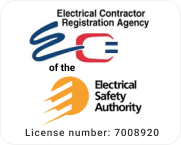Electric vs. Hydronic Driveway Heating Systems: Which Is Better?
Winter is around the corner. And considering how unpredictable winter weather can be, you need to be prepared in advance for any surprises it can bring. Heavy snowfalls are one of those unpleasant surprises you might need to deal with. One of the ways to ensure you don’t spend your morning shovelling snow off your driveway is to install a driveway heating system. A heated driveway will ensure your driveway is cleared from snow and ice. In this blog, we review the differences between electric and hydronic driveway heating systems.
Electric vs. Hydronic Driveway Heating Systems
Electric and hydronic heating systems are the two most common types of snow melting systems. As both differ slightly in terms of application, cost and other aspects, it is important to understand how each system works to choose the one that meets your specific needs.
Overview of electric heating system
The electric heating system uses cables woven between each other in a grid pattern. They are installed beneath the driveway surface and are resistant to damage and corrosion. These systems are durable and require little to no maintenance for 15 to 20 years.
Overview of hydronic heating system
This type of driveway heating system involves installing tubes filled with non-freezing water solution beneath the driveway. The water solution is heated in a boiler that’s usually installed in a garage. The solution then circulates through the tubes, melting the snow off the driveway.
Key Differences Between The Two Systems
While both radiant heat systems can effectively clear the snow off the driveway, there are a few differences that must be considered.
- Application. Electric systems are more commonly installed on residential properties, while hydronic ones are more likely to be installed on commercial properties.
- Response time. Electric systems are known for faster response time, so they will melt the snow faster than hydronic ones.
- Maintenance. Hydronic systems require the boiler to be inspected at least once a year to ensure its proper functioning. Electric systems don't need specific maintenance for 15 to 20 years unless there is physical damage caused to the driveway. In that case, a part or the entire pavement would have to be removed to get access to the heating cables.
- Cost. The average cost of installing electrically heated driveways is around $5000. Hydronic snow melting systems can be more expensive due to the additional cost of the boiler or other water heating units. The cost does not include the demolition of old and pouring of new pavement.
While both systems are fairly energy efficient and can effectively melt snow off your driveway, you need to carefully consider all of the above-mentioned aspects before selecting the right type of snow melting system. It is also important to understand that heating system installation is a job for professional electricians. Not only do they ensure high-quality installation, but they can also guide you on different types of heating systems and advise you on the best system for your specific needs.
A.S. Electrical is a trusted electrical company in Toronto offering a variety of quality services including heated driveway installation. We will advise you on the best type of heating system and the controller so that your driveway is cleared from snow even during the most severe snow conditions. Call us today for a consultation and help you prepare your driveway for the winter.


